第4章 CHAPTER I.(3)
In the cool night I preferred walking to the uneasy motion of the camel; the air was most invigorating after the intense heat of the day and the prostration caused by the simoom. The desert had a charm by night, as the horizon of its nakedness was limited;the rocks assumed fantastic shapes in the bright moonlight, and the profound stillness produced an effect of the supernatural in that wild and mysterious solitude; the Arab belief in the genii and afreet, and all the demon enemies of man, was a natural consequence of a wandering life in this desert wilderness, where nature is hostile to all living beings.
In forty-six hours and forty-five minutes' actual marching from Korosko we reached Moorahd, "the bitter well."This is a mournful spot, well known to the tired and thirsty camel, the hope of reaching which has urged him fainting on his weary way to drink one draught before he dies: this is the camel's grave. Situated half way between Korosko and Abou Hammed, the well of Moorahd is in an extinct crater, surrounded upon all sides but one by precipitous cliffs about 300 feet high. The bottom is a dead flat, and forms a valley of sand about 250 yards wide. In this bosom of a crater, salt and bitter water is found at a depth of only six feet from the surface. To this our tired camels frantically rushed upon being unloaded.
The valley was a "valley of dry bones." Innumerable skeletons of camels lay in all directions; the ships of the desert thus stranded on their voyage. Withered heaps of parched skin and bone lay here and there, in the distinct forms in which the camels had gasped their last; the dry desert air had converted the hide into a coffin. There were no flies here, thus there were no worms to devour the carcases; but the usual sextons were the crows, although sometimes too few to perform their office. These were perched upon the overhanging cliffs; but no sooner had our overworked camels taken their long draught and lain down exhausted on the sand, than by common consent they descended from their high places, and walked round and round each tired beast.
As many wretched animals simply crawl to this spot to die, the crows, from long experience and constant practice, can form a pretty correct diagnosis upon the case of a sick camel; they had evidently paid a professional visit to my caravan, and were especially attentive in studying the case of one particular camel that was in a very weakly condition and had stretched itself full length upon the sand; nor would they leave it until it was driven forward.
The heat of Moorahd was terrific; there was no shade of any kind, and the narrow valley surrounded by glowing rocks formed a natural oven. The intense dryness of the overheated atmosphere was such, that many of our water-skins that appeared full were nearly empty; the precious supply had evaporated through the porous leather, and the skins were simply distended by the expanded air within. Fortunately I had taken about 108 gallons from Korosko, and I possessed a grand reserve in my two barrels which could not waste; these were invaluable as a resource when the supply in the skins should be exhausted. My Arab camel-men were supposed to be provided with their own private supply; but, as they had calculated upon stealing from my stock, in which they were disappointed, they were on exceedingly short allowance, and were suffering much from thirst. During our forced march of three days and a half it had been impossible to perform the usual toilette, therefore, as water was life, washing had been out of the question. Moorahd had been looked forward to as the spot of six hours' rest, where we could indulge in the luxury of a bath on a limited scale after the heat and fatigue of the journey.